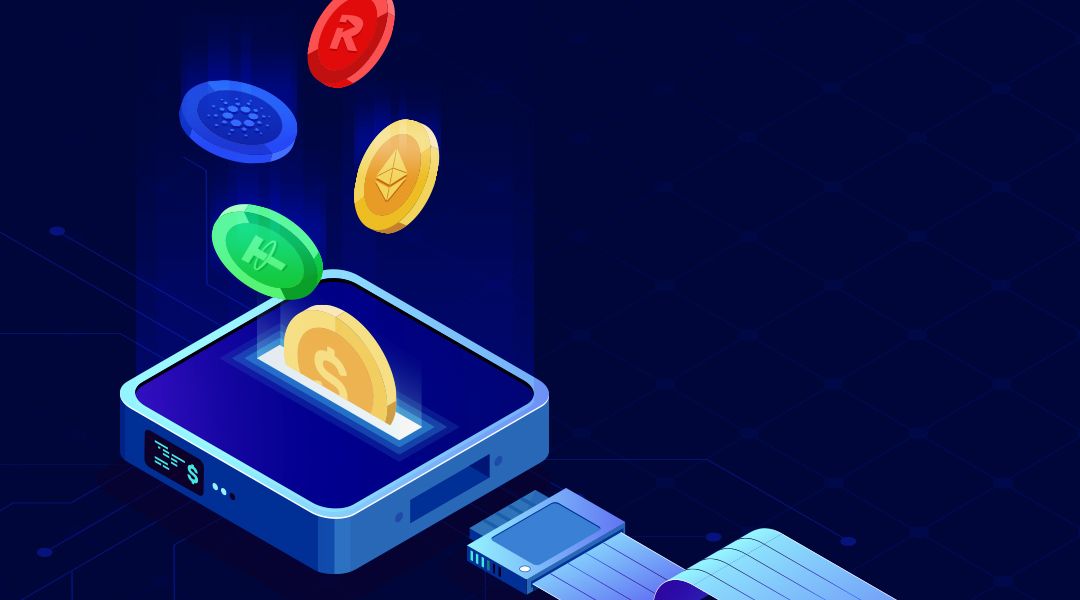
Exploring the World of Altcoins
This article provides an overview of altcoins, which are alternative cryptocurrencies to Bitcoin. It discusses the different types of altcoins, including stablecoins, governance tokens, utility tokens, and security tokens, as well as the pros and cons of investing in altcoins.
The cryptoverse is riddled with a series of terminologies, such as tokens, airdrop, smart contracts, etc. Even crypto veterans might struggle with mixing these up.
One of such term is “altcoin”. But don’t worry, it’s straightforward.
See, when cryptocurrency was initiated, Bitcoin was the first one created. Till today, it still reigns supreme in all the land as the most valuable coin in the market. But slowly, an evolution came into the market. Other coins began to pop up and demand their share of attention. So, they banded up together and called themselves “altcoins”.
Alright, it wasn’t that dramatic. In reality, altcoins were dubbed as the shortened form of “alternative coins”, aka all-coins-that-are-not-Bitcoin. But this definition has a caveat: not everyone agrees.
While Bitcoin was designed as an alternative to our everyday standard currency, Ethereum introduced a different concept to the blockchain universe altogether. Ethereum allowed for innovations such as smart contracts and decentralised applications (dApps) to flourish. This led to some crypto enthusiasts re-defining an altcoin as any cryptocurrency other than Bitcoin and Ethereum. But this is an argument for another day.
Types of Altcoins
Just like your favourite ice cream flavour, altcoins come in a variety to suit individual investment tastes. Let’s take a brief look at each one. However, this list is not exhaustive.
Stablecoins:
Everything about stablecoins implies its name. Intended to have a stable price, stablecoins are coins connected to something of value, such as regular fiat currency, gold or even food. Most of the popular stablecoins we have use the dollar. If the value of the dollar changes, the issuer of the stablecoins will take steps to address that fluctuation almost immediately.
Relevant stablecoins include USDT, USDC, BUSD, DAI, etc. Investors consider stablecoins as a great means of saving and buying goods online.
Governance Tokens:
Governance tokens represent the autonomous government of the blockchain. This altcoin allows holders certain rights within a blockchain, such as voting for protocol changes or having a say in a decentralised autonomous organisation (DAO) decisions.
Because this is primarily used in a private blockchain, it’s often categorised under utility altcoins. Still, because of their massive role, it’s regarded as a separate category.
Utility Tokens:
Utility tokens are used to provide different services within a specified network. As the name implies, the functions are numerous: from being used to pay for services, redeem gifts, pay gas fees, etc. Utility tokens can only be used on the blockchain purchased to keep them running.
Ether is an example of a utility coin because it can be used to pay gas fees and purchase services on its Ethereum network. Another good example is Filecoin, which is used to buy storage space on its network.
Security Tokens:
Security tokens are tokenised assets provided to investors on the stock markets. Any asset can be tokenised, such as real estate or stocks. For this to work, the asset must be secure. Otherwise, the tokens are worthless because they wouldn't represent anything. This type of token is regulated chiefly and guaranteed by the Department of Securities and Exchange Commission (SEC) of most countries.
Tokenisation is the transfer of value from a regular asset to a token, which is then made available to investors. For example, in 2021, mega Bitcoin wallet company, Exodus, converted $75 million worth of common stocks to tokens in the US.
Pros and Cons of Altcoins
What’s the Future of Altcoins?
The million-dollar question: should you invest in altcoins?
If you intend to be a seasoned crypto investor, you must boast an impressive portfolio containing altcoins. Some altcoins are ambitious projects offering more use cases than Bitcoin, which is primarily used as a store of value. But because altcoins are less popular, they could see more significant price increases if they catch on. This is because less popular coins are very cheap due to lower demand, and so early movers have an advantage when it grows.
However, there are notable downsides to buying altcoins.
For one, altcoins present a greater risk, with many of the much smaller altcoins being dubious investments or scams. Because of their sheer number, picking out the best altcoins to invest in takes time. It’s important to learn how to do your own research.
Wish Busha, undoubtedly the best cryptocurrency exchange company in Nigeria, you can easily keep a watchlist of altcoins to look out for. It’s easy.
You can get started here.
Read Next:
Are Stablecoins the Safest Coin?
These Are the Best Coins to Buy in 2023


